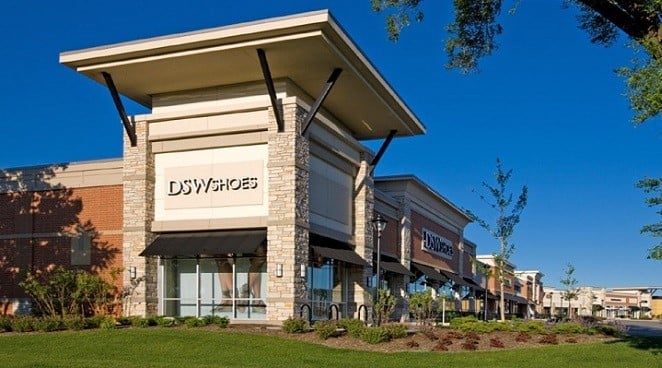
CHICAGO—Brick-and-mortar retailers have been shrinking their footprints due to the competition from e-commerce, and experts believe thousands of outlets will get shut down completely in 2017. But retail investors looking for solid returns can still find opportunities among well-located neighborhood centers. Tenants that provide services have always taken up much of the space in these properties. But many landlords now specifically recruit service providers to act as anchor tenants, making them “e-commerce proof.”
That was the strategy of Next Realty when it bought Lincolnshire Commons in 2014 for $40.3 million. The Northbrook-based investment firm has just put the 133,000 square foot center in suburban Lincolnshire up for sale, and any new owner will benefit from a recent switch. Next replaced the bookseller Barnes & Noble, its anchor tenant, with a NorthShore University HealthSystem outpatient facility.
“We're always asking, 'what is the long-term outlook for our anchor tenants?'” Next Realty president Marc Blum tells GlobeSt.com. And even though “there are many centers where Barnes & Noble is doing well,” the troubles encountered by booksellers that compete with Amazon.com are well-known.
Healthcare providers, however, now aim to “get their offices out into the neighborhood centers so people don't have to come to an intimidating hospital.” NorthShore has signed a 15-year lease for 35,000 square feet, about 26% of the shopping center's space.
Blum and other Next officials were initially attracted to Lincolnshire Commons because it had a lot of vibrant restaurants, another retail sector considered e-commerce proof. Tenants include Cheesecake Factory, Noodles & Co., Kona Grill, DSW, Chico's and AT&T. According to HFF, which Next hired to market the property, 73% of its income comes from e-commerce proof tenants.
Lincolnshire Commons has a number of other attributes that should garner interest. It has more than 800 parking spaces, and is located on the northwest corner of Milwaukee Ave. and Aptakisic Rd. next to the 330-acre Lincolnshire Corporate Center. This business park contains more than 3.5 million square feet of commercial and industrial space and its tenants employ about 10,000 people. Furthermore, the Regal Lincolnshire Stadium 21 & IMAX theater, which draws an average of 15,000 patrons per week, is located directly across the street.
Blum expects an offering like this to entice potential buyers from across the Midwest region, and perhaps the nation. “We think it will be a sophisticated investor that really values the long-term stability and cash flow that we have put in place.”

CHICAGO—Brick-and-mortar retailers have been shrinking their footprints due to the competition from e-commerce, and experts believe thousands of outlets will get shut down completely in 2017. But retail investors looking for solid returns can still find opportunities among well-located neighborhood centers. Tenants that provide services have always taken up much of the space in these properties. But many landlords now specifically recruit service providers to act as anchor tenants, making them “e-commerce proof.”
That was the strategy of Next Realty when it bought Lincolnshire Commons in 2014 for $40.3 million. The Northbrook-based investment firm has just put the 133,000 square foot center in suburban Lincolnshire up for sale, and any new owner will benefit from a recent switch. Next replaced the bookseller Barnes & Noble, its anchor tenant, with a NorthShore University HealthSystem outpatient facility.
“We're always asking, 'what is the long-term outlook for our anchor tenants?'” Next Realty president Marc Blum tells GlobeSt.com. And even though “there are many centers where Barnes & Noble is doing well,” the troubles encountered by booksellers that compete with
Healthcare providers, however, now aim to “get their offices out into the neighborhood centers so people don't have to come to an intimidating hospital.” NorthShore has signed a 15-year lease for 35,000 square feet, about 26% of the shopping center's space.
Blum and other Next officials were initially attracted to Lincolnshire Commons because it had a lot of vibrant restaurants, another retail sector considered e-commerce proof. Tenants include
Lincolnshire Commons has a number of other attributes that should garner interest. It has more than 800 parking spaces, and is located on the northwest corner of Milwaukee Ave. and Aptakisic Rd. next to the 330-acre Lincolnshire Corporate Center. This business park contains more than 3.5 million square feet of commercial and industrial space and its tenants employ about 10,000 people. Furthermore, the Regal Lincolnshire Stadium 21 & IMAX theater, which draws an average of 15,000 patrons per week, is located directly across the street.
Blum expects an offering like this to entice potential buyers from across the Midwest region, and perhaps the nation. “We think it will be a sophisticated investor that really values the long-term stability and cash flow that we have put in place.”
Want to continue reading?
Become a Free ALM Digital Reader.
Once you are an ALM Digital Member, you’ll receive:
- Breaking commercial real estate news and analysis, on-site and via our newsletters and custom alerts
- Educational webcasts, white papers, and ebooks from industry thought leaders
- Critical coverage of the property casualty insurance and financial advisory markets on our other ALM sites, PropertyCasualty360 and ThinkAdvisor
Already have an account? Sign In Now
*May exclude premium content© 2025 ALM Global, LLC, All Rights Reserved. Request academic re-use from www.copyright.com. All other uses, submit a request to [email protected]. For more information visit Asset & Logo Licensing.








